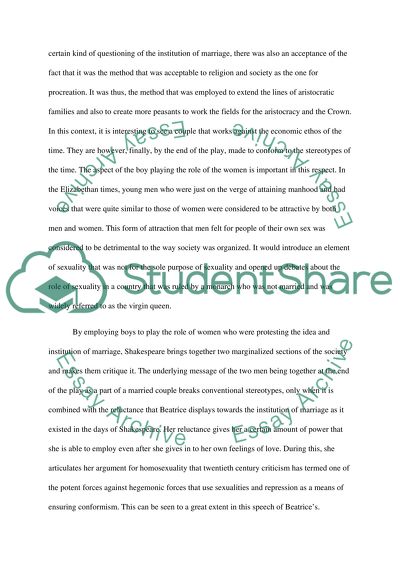Cite this document
(“Much Ado About Nothing Research Paper Example | Topics and Well Written Essays - 2250 words”, n.d.)
Much Ado About Nothing Research Paper Example | Topics and Well Written Essays - 2250 words. Retrieved from https://studentshare.org/literature/1455334-in-shakespearean-romantic-comedy-the-idealized
Much Ado About Nothing Research Paper Example | Topics and Well Written Essays - 2250 words. Retrieved from https://studentshare.org/literature/1455334-in-shakespearean-romantic-comedy-the-idealized
(Much Ado About Nothing Research Paper Example | Topics and Well Written Essays - 2250 Words)
Much Ado About Nothing Research Paper Example | Topics and Well Written Essays - 2250 Words. https://studentshare.org/literature/1455334-in-shakespearean-romantic-comedy-the-idealized.
Much Ado About Nothing Research Paper Example | Topics and Well Written Essays - 2250 Words. https://studentshare.org/literature/1455334-in-shakespearean-romantic-comedy-the-idealized.
“Much Ado About Nothing Research Paper Example | Topics and Well Written Essays - 2250 Words”, n.d. https://studentshare.org/literature/1455334-in-shakespearean-romantic-comedy-the-idealized.


